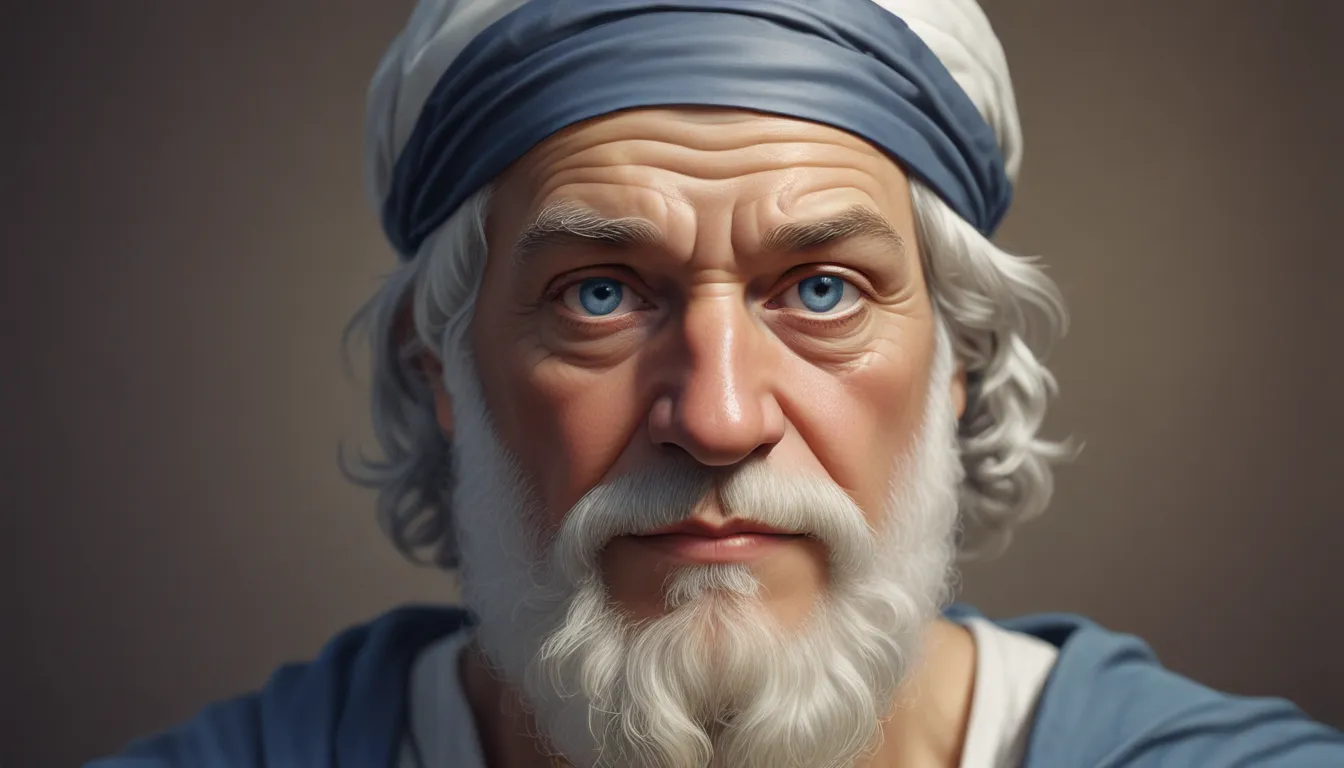The images in our articles may not match the content exactly. They are used to grab your attention, not to show the exact details in the text. The images complement the text but do not replace it.
Aristotle, a prominent figure in ancient Greek philosophy, continues to captivate and inspire people with his profound ideas and theories. Born in 384 BC, Aristotle made significant contributions to various fields of study, including logic, biology, ethics, and metaphysics. His teachings have influenced generations of scholars and continue to shape our understanding of the world.
Unveiling the Life of Aristotle
Aristotle, a Greek philosopher and polymath, was born in 384 BC in Stagira, Greece. He was one of the most influential figures in Western philosophy and science, with a vast range of disciplines that included logic, biology, ethics, politics, and metaphysics. As a student of Plato, Aristotle spent nearly 20 years under the tutelage of the great philosopher, whose teachings greatly influenced his intellectual growth.
The Tutor of Alexander the Great
One of the most intriguing aspects of Aristotle’s life was his role as the personal tutor of Alexander the Great. From 343 to 335 BC, Aristotle imparted his knowledge and wisdom to the young prince, who would go on to become one of the greatest military leaders in history. Aristotle’s teachings played a crucial role in shaping Alexander’s worldview and approach to leadership.
Aristotle’s Philosophical Concepts
Aristotle was a firm believer in the concept of the “golden mean,” which advocated for moderation and balance in all aspects of life. He argued that finding the desirable middle point between extremes would lead to a virtuous and fulfilling life. This concept greatly influenced his ethical and moral theories, emphasizing the importance of finding balance in one’s actions.
Contributions to Logic and Philosophy
Considered the founder of formal logic, Aristotle made significant contributions to the field by developing numerous logical principles and methods. His work in logic laid the groundwork for the discipline and had a profound impact on philosophy and reasoning for centuries to come. Despite the loss of many of his writings after his death, his works were later rediscovered, leading to a resurgence in philosophical thought during the Middle Ages and beyond.
Influence on Politics and Governance
Aristotle’s writings on politics, particularly his seminal work “Politics,” have had a lasting impact on political theory and governance for over two millennia. His theories on the ideal state, the best form of government, and the role of citizens laid the foundation for political philosophies throughout history. His ideas continue to shape discussions on governance and citizenship, influencing political thought to this day.
Aristotle’s Views on the Universe
Aristotle believed in a geocentric model of the universe, where the Earth was considered the center, and all celestial bodies revolved around it. This view was widely accepted until the heliocentric model proposed by Copernicus in the 16th century. Additionally, Aristotle’s metaphysics included the concept of a Prime Mover or “Unmoved Mover,” which he believed was responsible for the motion and order of the universe. This concept had a significant influence on later philosophical and theological discussions.
Lasting Impact on Western Thought
Aristotle’s philosophy has had a profound and lasting impact on Western thought, influencing disciplines such as ethics, logic, biology, and political theory. His extensive contributions continue to shape philosophical and scientific discourse, making him one of the most influential thinkers of all time. During the Islamic Golden Age, Aristotle’s works were translated into Arabic and extensively studied by scholars, significantly influencing Islamic philosophy and becoming an integral part of the intellectual tradition in the Muslim world.
Conclusion: Aristotle’s Enduring Legacy
In conclusion, Aristotle was a remarkable philosopher whose contributions have stood the test of time. His influence can still be felt in modern philosophical and scientific discourse, with his ideas continuing to shape the world. From his groundbreaking work on virtue ethics to his profound views on the universe, Aristotle’s legacy remains both intriguing and enduring. Through his teachings, he has shaped the foundations of how we perceive the world and ourselves.
FAQs: Delving Deeper into Aristotle
-
Q: What were some of Aristotle’s major works?
A: Some of Aristotle’s major works include “Nicomachean Ethics,” “Categories,” “Prior Analytics,” and “Physics,” where he explored various philosophical and scientific concepts. -
Q: What is Aristotle’s contribution to logic?
A: Aristotle made significant contributions to the field of logic by developing the system of syllogistic logic, which became a fundamental aspect of formal reasoning. -
Q: How did Aristotle view ethics?
A: Aristotle emphasized virtue ethics, advocating for finding the mean between excess and deficiency to lead a virtuous life. -
Q: Did Aristotle have any famous students?
A: Yes, Aristotle’s most famous student was Alexander the Great, whose worldview was greatly influenced by Aristotle’s teachings.
With his enduring legacy and profound ideas, Aristotle continues to inspire and challenge scholars in various fields of study. His contributions to philosophy, science, and ethics have left an indelible mark on intellectual discourse, shaping the way we understand the world. Join us in exploring the captivating world of Aristotle and unraveling the mysteries of his philosophical genius.






